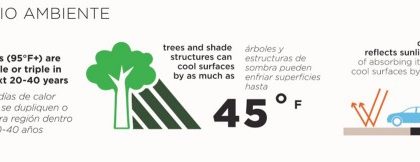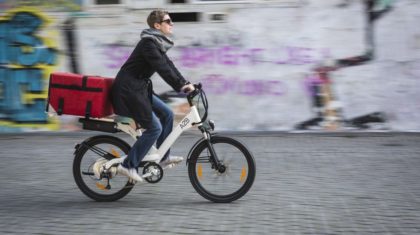
Universities are not only institutions of higher learning, they are also research and thought leaders and places of great innovation. One way that universities and colleges are serving as innovation leaders is through their development and provision of on-campus bike share programs.
Why Bike Share?
- Campuses provide an ideal (captive) demographic. Millennials historically have a low-car ownership rate and are often more open to multi-modal options for their transportation needs.
- Parking on or near campus is expensive. Particularly on a campus where a student is paying for the privilege of storing a vehicle that is used only 3–4 times a month.
- The model setting and landscape. Campuses typically have the layout and land uses that support biking and walking over other transportation modes.
- Bike share is transit-supportive. Bike share is an ideal complement to an existing city- or campus-supported transit system. Bike share fills in the gaps where those existing transit systems may not reach.
- Bike share reduces abandoned bikes. Campuses are often finding bikes abandoned on campus, locked to existing racks, sign poles, and elsewhere.

Bike Share Models
Several different bike share models are currently in use across the United States:
- Ad hoc, library-style system, where bikes are checked in and out much like a library book or DVD. A good example is the Keene State College Green Bikes program http://www.keene.edu/sustain/initiatives.cfm.html.
- “Smart Lock” system, where the technology utilized in checking in and out the bike is carried on the bike (typically in the locking mechanism) and which allows the bikes to be locked up to any standard bicycle rack. Yale University offers this type of system to anyone with a Yale ID. http://to.yale.edu/yale-bikeshare
- “Smart Kiosk” system, where the technology utilized for checking in and out the bike is located in the station. This requires that bike share specific bicycle racks be located at appropriate locations around campus. We see this type of system succeeding in cities with universities (Madison, Boston, Washington D.C., Denver, Minneapolis) across the United States, as well as at several universities with their own campus-only bike share system. The Green Bikes program at Washington State University is one such example. http://www.greenbike.wsu.edu/




The Future
As campuses continue to focus on sustainability, while improving the quality of life for students, faculty, and staff on campus, bike share will continue to be part of the solution for many universities and colleges.


